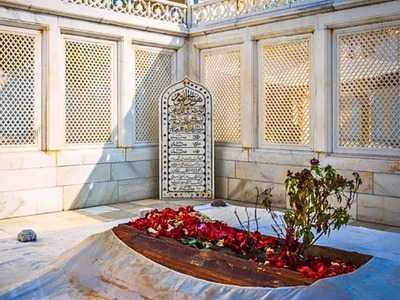
Members of the ruling party in Maharashtra have demanded to rename Khuldabad, where the Mughal emperor Aurangzeb’s tomb is located, to Ratnapur.
Khuldabad, which is located 30 km from Chhatrapati Sambhajinagar (formerly known as Aurangabad), has been at the centre of political controversy after far-right politicians, including Maharashtra minister Sanjay Shirsat, have raised intense demands to remove the tomb stating that there is “no place for Aurangzeb’s grave in Maharashtra” and describing the Mughal emperor as a cruel ruler.
“Chhatrapati Sambhajinagar was known as Khadki in the past, but it was renamed Aurangabad. Daulatabad was Devgiri, similarly, Khuldabad was earlier known as Ratnapur, but Aurangzeb named it Khuldabad. We are in the process of renaming all such places,” Shirsat claimed.
Soon after the release of Vicky Kaushal’s Chavva, which speaks about the life and untimely death of Chhatrapati Sambhaji Maharaj, who was tortured and executed by Aurangzeb, Bharatiya Janata Party (BJP) leaders and its allies have been demanding the removal of the Mughal Emperor’s tomb in Khuldabad. According to them, the tomb holds no historical significance in India.
This was further cemented after Samajwadi Party leader Abu Asim Azmi defended Aurangzeb, evoking strong reactions from Udayanraje Bhosale and Navneet Rana.
Also Read
For now, Aurangzeb’s tomb is guarded like a fortress after the chief minister Devender Fadnavis said its removal is difficult as it comes under the protection of the Archaeological Survey of India (ASI).
Social activist and former Congress city district president Mohammad Hisham Osmani strongly condemned the move, describing it as a calculated distraction from pressing public concerns. He argued that it was rooted in “minority hatred” and aimed at erasing medieval history in order to diminish the memory of minority contributions, Maktoob Media reported.
“Instead of addressing real crises like the acute water shortage in the city, inflation, economic crisis, rising youth unemployment or the failing education system, devaluation of currency, and increasing farmer suicides, our leaders are more in a name game politics like the renaming of cities,” Osmani was quoted by Maktoob Media.
“This is not governance, it’s diversionary politics aimed at inflaming identities and dividing citizens, just as the British did under their infamous divide-and-rule policy,” he added.
Significance of KhuldabadThe name “Khuldabad,” meaning “heavenly abode,” carries deep religious and cultural resonance for multiple communities.
Khuldabad, often referred to as the “Valley of Saints,” is home to the dargahs of several revered Sufi saints, including the 14th-century mystic Hazrat Zar Zari Zar Baksh. Muhammad bin Tughlaq shifted the Delhi Sultanate’s capital to Daulatabad, prompting many Sufi saints to settle nearby Khuldabad.
Khuldabad’s proximity to the famed Ellora and Ajanta Caves—both UNESCO World Heritage Sites—had long contributed to steady footfall in the region.
Get the latest updates in , , , , and on & by subscribing to our channels. You can also download our app for and .